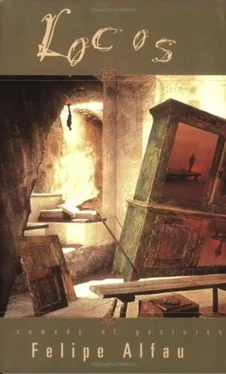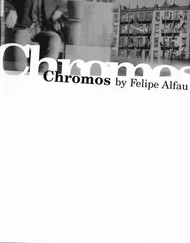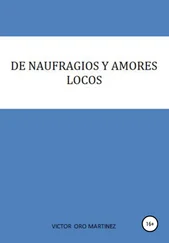Dr. de los Rios was a strange physician. Listening to him I was often tempted to believe that medicine was almost a science.
Tia Mariquita was reciting something and accompanying it with a waltz played softly on the piano. When she finished amid the general applause she confessed with lowered eyes that the poetry was her own. Then she went on and sang an air from some opera, and interrupting herself with all the abruptness of a true genius, she exclaimed ecstatically to her audience:
“Although literature has always been my passion, music is my weakness, that is why I love operas so.”
Someone said something about operas but I was observing Tia Mariquita and did not listen. She answered:
“Oh, yes, I heard Gayarre the divine as they called him, and since then I cannot think of Il Trovatore or Rigoletto without the tears coming into my eyes. He visited me, we spoke of music, and he told me that he had never met such an understanding person before. He stood there, right where you are.”
Everybody looked at a gentleman who had an air of suffering from chronic colic and who was standing by the piano. A pensive expression came into his face to intensify his distressing aspect. Tia Mariquita went on:
“Yes, he stood right there and he sang his famous air ‘Spirito Gentile’ and I accompanied him. At that time I could play; I am nothing but a shadow of what I was then.” And Tia Mariquita went on to explain that when they finished they were both crying like children and he exclaimed in a rapture:
“You are an inspiration, it is a privilege to be accompanied by you. Today I have discovered the true ‘Spirito Gentile,’ and I shall never sing it with anybody else.”
And Tia Mariquita added:
“He was so gallant! Poor Gayarre, he died soon after and never sang it again. Those were the times!”
The gentleman who stood where Gayarre had sung said:
“And do you remember that air from La Forza del Destino he used to sing? Trala, lara, lara. do you remember it?”
“Of course, I do.” Tia Mariquita played something else by some other composer, showing the whites of her eyes while vocalizing and curling her fingers, without paying attention to the puzzled expression on the man’s face who could not recognize the air from La Forza del Destino and who followed her arpeggios and scales with a twisted mouth. He was about to protest but already everybody was echoing:
“Delightful, delightful.!”
And he had to content himself with standing where Gayarre had stood.
After that the chocolate was served and everybody pounced on it with eagerness and resolution. The younger nephews and nieces, however, were held back by a fusillade of parental looks and Tia Mariquita taking a platter went from one to the other giving each a round flat cake and repeating:
“El bizcocho de la Tia Mariquita. “
From a distance she looked exactly like a priest delivering communion.
At this moment another person made his presence noticed by a deep cough. It was the secretary of Tia Mariquita, a fellow by the name of Cendreras whose face always looked as if he had just stepped out of a steam bath.
Cendreras shuffled across the carpeted floor without making the slightest noise. He was in slippers and wore a smoking jacket. Without saluting anyone he helped himself to some chocolate and biscuits and mixed in the general conversation as if he had just left the room a minute before, coughing intermittently.
Once when a cough sounded particularly strong, I looked at Cendreras although the cough seemed to come from no particular direction.
“It was not he that time,” said Dr. de los Rios. “That was the house coughing.”
I turned to Dr. de los Rios.
“Yes,” he continued. “All this is absurd. Do you see all these hungry people? They all have been influenced by this environment and this fantastic woman. They do not exist, they are but shadows of her, they are the perfect family as seen from the viewpoint of one of its individuals. Just a shadow, something to give the individual a relative position socially. They are waiting impatiently for her death, for the day when she will shed her identity and her inheritance among them. Then they will live, or at least exist.”
I signaled Dr. de los Rios to lower his voice.
“Don’t worry, they can’t hear. They live on a different plane and do not exist in our world.”
In effect he was speaking in a loud voice and yet nobody seemed to hear him and Dr. de los Rios went on talking to me.
From him I gathered that the only person in the whole family with any sense was her husband. He had a good sense of humor, too. He was the only one who had found a practical use for all those draperies and rugs and cushions. When he had money to spare, he changed a bill and then scattered the change all over the house, with the result that when he was out of funds one could always see him down on all fours, looking under a chair or a bed, shaking a portiere here and lifting a cushion there. In that manner he gathered pocket money. According to Dr. de los Rios, he never was much around the house, he was outside and traveling most of the time and that is why he kept his sense.
“He is a curious type,” Dr. de los Rios finished. “It is very entertaining to listen to him. He has had an active and adventuresome life. You will like him when you meet him.”
“What is his name? Because I only know this lady as Tia Mariquita.”
“His name is Olózaga. I have known him for a very long time. As a matter of fact, I knew him long before he married Tia Mariquita.”
“Where did you meet him?”
“Long ago, in the Philippine Islands when they were Spanish. I practiced medicine there for the first time. I was quite young then and all I knew was how to administer quinine by the barrel.”
“One has to take a lot of that in the colonies, I understand.”
“It depends to some degree on whom the colonizer is, and where the colonies are located.”
Dr. de los Rios turned the conversation of his own accord upon Olózaga.
According to him, Olózaga was a strong personality, and Tia Mariquita was but one of the fanciful turns of his life. All that family of hers was nothing but a stage setting of wax figures without life of their own, to keep things going while the strange fascination of Olózaga’s presence was missing. And Dr. de los Rios added:
“Sometimes when I see all this I fancy him behind the scenes, laughing mockingly. Some people say that he is wicked. I like him. After all, these are nothing but wax figures.”
I remembered then that Dr. de los Rios had already spoken once before about Señor Olózaga, when he was going to introduce me to Tia Mariquita. He had said:
“She is a colorful aspect of his life.”
By this time the chocolate was finished and Tia Mariquita announced that she was going to read a play of her own composition. Dr. de los Rios excused himself saying that he had to call on a patient and, as I felt rather lost there without him, I decided to go also.
Tia Mariquita saw us to the door talking with Dr. de los Rios about her nerves. In the corridor, where we had to squeeze our way between trinkets and odd furniture, she stopped before a console and assumed a theatrical pose worthy of Sarah Bernhardt.
“This is the grave of my child. There I keep all his little clothes and the things he used before he died and was cast into the eternal sea.” She staggered a bit effectively and laid her hands on our shoulders as if we were two supporting characters before a large audience: true Sarah Bernhardt style.
“Never mention this to Olózaga.” She always addressed him by his second name. “He does not want to be reminded of it. It kills him, it breaks his heart. It has been the tragedy of our lives. It was not our lot to see our heir grow.” She pointed again at the console:
Читать дальше












